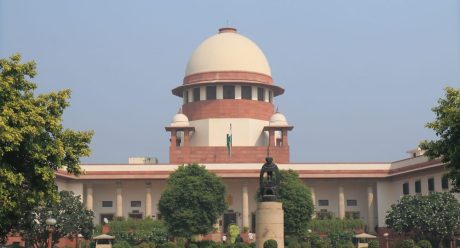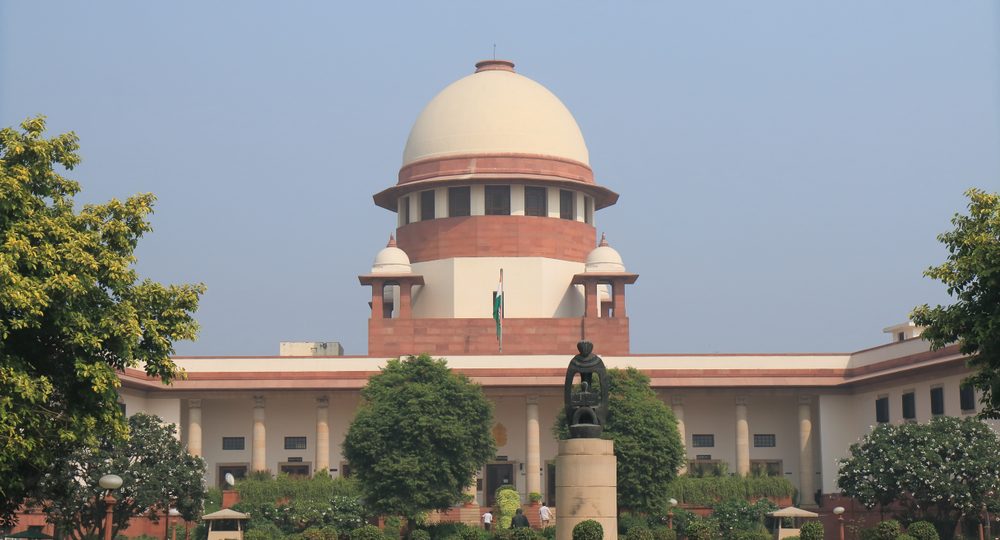The legal framework governing arbitration in India has undergone significant reform to align with international trends and meet the demands of the global economy. This transformation is reflected by the growing prominence of arbitration as the primary avenue for commercial dispute resolution in the Indian market, driven by the influx of businesses and surge in international trade.
The recent judgment of the Supreme Court in Delhi Metro Rail Corporation v Delhi Airport Metro Express where it exercised its curative jurisdiction to set aside a USD 960 million award has raised concerns amongst the arbitration community in India and goes against the generally pro-arbitration stance taken by the Indian courts. However, generally, the Indian courts have played a major role by taking proactive steps to reduce judicial intervention and foster an arbitration-friendly environment, in line with the Indian government’s ambitions to promote India as a hub for arbitration.
2023 in particular unfolded with a resolute stride, marked by a series of impactful decisions aimed at strengthening the nation’s arbitration jurisprudence. In this article, Sherina Petit, Nishant Nath Singh, and Vijaya Singh, provide a concise overview of the key arbitration judgments delivered by the Indian judiciary in 2023, offering insights into their implications and contributions to arbitration practices, both domestically and internationally.
Overview of key judgments in 2023

TATA Sons (P) Ltd v Siva Industries and Holdings Ltd
The Supreme Court clarified that international commercial arbitrations are exempt from the 12-month time limit set by the amended section 29A of the Indian Arbitration and Conciliation Act, 1996 (“the Act”) for rendering an award. The court emphasised that arbitral tribunals in international commercial arbitrations are not required to adhere to the time limit prescribed for domestic arbitration. Finally, the court, citing section 29A, held that it applies to all pending arbitrations seated in India as of 30 August 2019 and commenced after 23 October 2015.

Alpine Housing Development Corpn. (P) Ltd v Ashok S. Dhariwal
The Supreme Court passed directions on the pre-2019 amendment version of section 34(2)(a) of the Act (which concerns the circumstances when an arbitral award may be set aside by the court). The court held that the section applies to arbitration proceedings commenced and completed prior to the 2019 amendment. The bench comprising Justice MR Shah and Justice CT Ravikumar held that if issues relevant to the resolution of matters under section 34(2)(a) are not recorded in the arbitration, then the party challenging the award based on the grounds permitted in section 34(2)(a) may only be permitted to file an affidavit as evidence in exceptional circumstances. However, such permission will only be granted when absolutely necessary.

NTPC Ltd v SPML Infra Ltd
The Supreme Court stated that the jurisdiction of the referral courts under section 11(6) of the Act is limited and includes two inquiries. The primary inquiry focuses on determining the existence and validity of an arbitration agreement. The secondary inquiry that may arise during the referral stage concerns the non-arbitrability of the dispute. As a general rule, the arbitral tribunal has the first authority to determine and resolve all questions regarding non-arbitrability. As an exception to the rule, and rarely as a demurrer, the referral court may reject claims that are manifestly and ex-facie (i.e. on the face of it) non-arbitrable.

B&T AG v Ministry of Defence
The Supreme Court ruled on the issue of computing limitation in arbitration cases involving contractually mandated pre-arbitral negotiations. In this judgment, the court stated that negotiations can continue for 10 or 20 years after the cause of action arose. Therefore, negotiations will not delay the “cause of action” for the purpose of limitation. The legislature has set a three-year limitation period for filing a section 11 application, beginning on the date the cause of action first arose. In cases where parties are engaged in significant negotiations aimed at amicably resolving the dispute, the court is tasked to determine the “breaking point” at which such efforts would be abandoned. The court provided guidance to calculate the limitation period: the entire history of negotiations must be presented and documented in order for the court to determine the specific “breaking point”.

Tomorrow Sales Agency Private Limited v SBS Holdings Inc.
The Delhi High Court refused to hold a third-party funder responsible for paying an adverse costs award. The court emphasised the importance of a third-party funder, stating that without a third-party funder, a person without the necessary resources would be unable to access justice. Third-party funders play an important role and must be completely aware of their exposure. They cannot be held liable for something they have not agreed to or are unaware of.

Nuovopignone International SRL v. Cargo Motors (P) Ltd
The Delhi High Court took a pro-arbitration stance and accepted the enforcement of foreign consent awards obtained after seeking legal opinions under Part II of the Act, which enforces foreign arbitral awards to which the New York Convention applies. In doing so, the judge rejected the arguments that the consent award was outside the scope of the New York Convention and was contrary to public policy. Separately, the court noted that Section 30(4) of the Act clearly states that a consent award has the same status and effect as any other award on the substance of the dispute. Sub-section (4) is essentially a reiteration of the well-established principle of Indian jurisprudence that a decree drawn by consent has equal vigour and standing as a decree drawn after due contest.

Larsen Air Conditioning & Refrigeration Co. v Union of India & Ors
The Supreme Court held that the High Court erred in modifying the arbitral award, as a court acting under Section 34 of the Arbitration Act is empowered to set aside an award only in part or whole. The judicial trend appears to be aligned with the Act, which was modelled on the UNCITRAL Model Law on International Commercial Arbitration (1985). As pointed out in Redfern and Hunter on International Arbitration, the judgment makes clear that the “limited remedy” under Section 34 is coterminous with the “limited right”, namely, either to set aside an award or remand the matter under the circumstances mentioned in Section 34 of the Act.

Hindustan Construction Co. Ltd v National Highways Authority of India
The Supreme Court held that if the majority award is overturned, a dissenting opinion rendered in an arbitration proceeding cannot be considered an award. The court was of the opinion that the dissenting opinion does not receive the same level of scrutiny as the majority award (which was being challenged). As a result, the so-called conversion of the dissenting opinion into a tribunal’s findings (in the event a majority award is overturned) and elevation of that opinion as an award would be inappropriate and improper in relation to the majority award.

Chennai Metro Rail Ltd v. Transtonnelstroy Afcons
The Supreme Court held that an arbitral tribunal will not become ineligible to act merely by attempting to revise the arbitral fee unilaterally. In dismissing the appeal, the court noted that the concept of de jure (i.e. in accordance with the law) ineligibility because of the existence of justifiable doubts about impartiality or independence of the tribunal on unenumerated grounds (or other than those outlined as statutory ineligibility conditions in terms of Sections 12 (5)) cannot serve as a pathway for initiating challenges against the arbitral tribunal during ongoing proceedings.

Unibros v All India Radio
The Supreme Court held that an award for loss of profit or general or specific damages cannot be made without evidence of the claimant’s injury, as this would be contrary to the Indian public policy under section 34(2)(b)(ii) of the Act. In doing so, the court provided guidance on the conditions that must be met to establish a claim for loss of profit, as well as the types of evidence that will be required to be considered when deciding such claims.

Lombardi Engg. Ltd v Uttarakhand Jal Vidyut Nigam Ltd
In a landmark judgement, the Supreme Court declared that a clause requiring a pre-deposit as a pre-condition for the appointment of arbitrators violates Article 14 of the Indian Constitution. Pre-deposits as a pre-condition would deter a party from opting for arbitration and could result in creating a hindrance to the arbitration process. The court stated that there could be no waiver of any fundamental right guaranteed by Part III of the Indian Constitution.

Sri Ganesh Engineering Works v Northern Railways
The Delhi High Court held that an arbitration clause granting a party the right to nominate two-thirds of the tribunal members violates the principle of counterbalancing established in the landmark Perkins Eastman Architects DPC v HSCC (India) Ltd case. The High Court also emphasised the requirement highlighted by the Supreme Court in Voestalpine Schienen GmbH v Delhi Metro Rail Corporation Ltd, which is to have a broad-based panel so that there is no misapprehension that the principle of impartiality and independence has been discarded at any stage of the arbitral tribunal’s constitution.

Cox and Kings v SAP
The Supreme Court constitution bench clarified the application of the ‘group of companies’ doctrine in the Indian context and affirmed that an arbitration agreement can bind a non-signatory company within a group of companies if certain conditions are satisfied. In doing so, the court adopted a modern approach to consent to accommodate the commercial realities of composite transactions involving several interconnected agreements and parties.

Re Interplay Between Arbitration Agreements Under the Arbitration and Conciliation Act 1996 and The Indian Stamp Act 1899
The seven-judge bench, led by Chief Justice DY Chandrachud, upheld the validity of unstamped or inadequately stamped agreements and unanimously overturned the decision in N.N. Global Mercantile Pvt. Ltd v M/s. Indo Unique Flame Ltd. And Ors. In doing so, the court determined that non-stamping or inadequate stamping is a curable defect. Agreements that are not stamped or are inadequately stamped are inadmissible in evidence under Section 35 of the Indian Stamp Act 1899 (“Stamp Act”), but such agreements are not rendered void or void ab initio (i.e. legally null from the start) or unenforceable. Furthermore, any objection to the stamping of the agreement falls under the purview of the arbitral tribunal.
The future of arbitration in India
The future of arbitration in India appears promising, fuelled by institutional innovation, technological advancements and enforcement mechanisms. These developments have made the arbitration process more cost-effective, time-bound and efficient, establishing India as a desirable arbitration destination. The Expert Committee on Arbitration Law, set up by the India’s Ministry of Law and Justice on 12 June 2023, to examine the working of the arbitration law in the country and recommend reforms to the Act presented its proposed reforms in the form of a report in February this year.
Despite existing challenges, such efforts by the Indian government combined with a generally pro-arbitration judicial mindset, demonstrate India’s commitment to promoting arbitration as a viable dispute-resolution mechanism.
You can find further information regarding our expertise, experience and team on our International Arbitration page.
If you require assistance from our team, please contact us.
Subscribe – In order to receive our news straight to your inbox, subscribe here. Our newsletters are sent no more than once a month.







